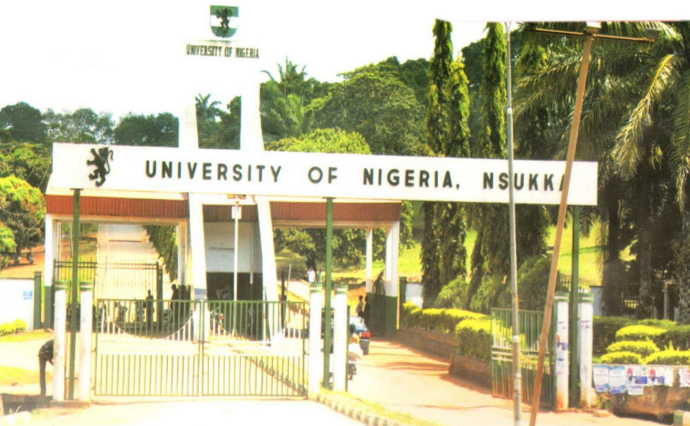Benjamin Ozumba, vice chancellor of the University of Nigeria, Nsukka, says that the university will soon start producing laptops and tractors for commercial use.
Ozumba made this statement at the launch of the new science and technology incubator, first of its kind in West Africa, called “Roar Nigeria Hub”.
NAN reports that the launch is a dream come true for the professor who had vowed to establish such after visiting a science park in Sweden in 2016.
“We want to turn Nigeria around with inventions and innovations. Very soon, you will hear about students of UNN making laudable inventions in ICT and other fields of life,” he said.
Ozumba took the first step towards his goal by mandating that every student of the university must own a laptop computer in order to meet the demands of the 21st century tertiary education.
Although the policy attracted mixed reactions leading to the removal of the compulsory clause, Ozumba however believes that the university has the capacity to assemble its own laptop.
“In the next few months, made in UNN laptops will flood Nigerian market, this is the first mandate of Roar Nigeria Hub. Laptops will not be the only products of the hub, the university would soon start assembling tractors for agricultural use.”
He challenged the Roar Nigeria Hub to come up with innovations that would curtail wastage of agricultural produce in the country.
The hub, which was borne out of a collaboration between the university and the Benefiting Our Community (BOG) Innovations, aims to produce new generation of innovators that will provide local technology-based solutions with global perspective.
The launch of the hub attracted foremost IT companies, including Google, Facebook, Huawei Technologies, Nigeria Communication Commission (NCC), National Information Technology Agency (NITDA), Computer Warehouse Group, and Exxon Mobil.
Three groups, comprised by students of the university, presented their proposals at the launch.
The first group, AGROMESS, developed an app that will help farmers solve the problem of wastage of agricultural products. The app will help identify parts of the country that have surplus agro products and link them to areas where the products are scarce.
The second group, Malicha, developed a mobile app that uses artificial intelligence to recommend hairstyle that will fit a particular facial make-up.
The third group, inThrillers, developed an app that will notify people of events happening around them on their mobile phones.
Copyright 2025 TheCable. All rights reserved. This material, and other digital content on this website, may not be reproduced, published, broadcast, rewritten or redistributed in whole or in part without prior express written permission from TheCable.
Follow us on twitter @Thecablestyle


Imperialists company will take over the place and shut it down.The one you saw in Sweden how many African compsnies care there?
This is to students in UNN please if you have any idea about business leave UNN and pursue your ideas .UNN like all universities and Polytechnic in Nigeria are massively corrupt and the same uninovative atitude they have in academics will come here. Example you about DOING CLEARANCE UNN SHOULD FIX THAT FIRST
What a comment. Please what is your real name?
We need real tech not app that can be created by a layman.
Besides the laptop you mandated was fake. If you don’t have anything to say…
This is wonderful! UNN remain the best University in Nigeria, and will continue to lead all the university in Nigeria for next 100 years to come.